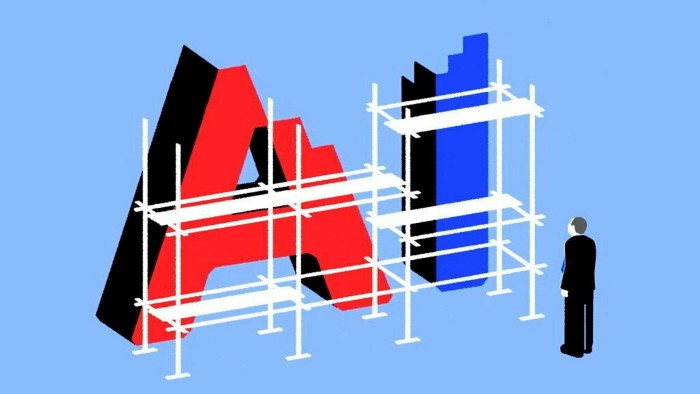Stay informed with free updates
Simply sign up to the Artificial intelligence myFT Digest — delivered directly to your inbox.
The writer is research assistant at the Oxford School of Global and Area Studies
Vladimir Putin does not use the internet, according to a Russian intelligence officer who defected. Nor does he have a smartphone. A decade ago he made the people in his inner circle use typewriters. In this context, it shouldn’t be surprising that Russia has fallen so far behind on artificial intelligence.
Global sanctions have also prevented the country from developing a domestic AI sector. Radio Free Europe recently reported that Sberbank — Russia’s majority state-owned financial services giant — has only been able to procure 9,000 graphics processing units since Russia began a full-scale military invasion of Ukraine in February 2022 (Microsoft bought almost 500,000 last year). Russia has new trade partners, but not ones with access to large quantities of advanced semiconductors. Compounding the problem, it has lost about 10 per cent of its tech workforce to emigration since 2022.
As a result of these factors, Russia is ranked 31st in the world in AI capacity by Tortoise Media’s Global AI Index, behind every major economy and even small countries like Portugal, Norway, Ireland and Luxembourg.
The country has a strong incentive to boost its capabilities. If Putin wants to extend online censorship to AI, it will need even more compute, which means more chips.
It will also need access to more advanced chips as AI changes the nature of warfare. Scientific and technological progress is increasingly tied to compute, meaning access to chips will be a key strategic enabler for militaries in just a couple of years (if it isn’t already). No chips, no compute; no compute, no advances in defence tech.
Leading figures in AI regularly make far more radical claims. Some hold that we are on the cusp of a revolution in autonomous weapons systems. If this is true, then Russia will lack the means to develop a 21st-century military. And if the war against Ukraine is frozen for a few years, the capabilities gap between European and Russian militaries could grow by an order of magnitude.
For Russia’s rivals, a window is opening for a deterrence-by-denial strategy.
By depriving Russia of access to the advanced chips required for AI, we can deny it a key strategic enabler and deter it from future aggression. To make this a reality, Ukraine’s allies must convince the Trump administration to take chips off the table in any negotiations that take place between Russia and the US. Some form of sanctions relief seems inevitable, but sanctions on semiconductors must remain in effect.
Second, Ukraine’s allies should encourage further emigration from Russia’s tech sector. Visa schemes could be set up to facilitate the flight of AI-literate graduates from Russia to the west.
Lastly, Russia’s AI trajectory should be communicated to anti-Putin individuals within the Russian regime. If people around Putin can be convinced of the seismic scale of his AI blunder, discontent could grow — perhaps even to the point of destabilisation.
There are reasons this may not pan out. As China’s inexpensive AI model DeepSeek-V3 demonstrated, there can be something of a latecomer’s advantage in AI. High-end capabilities can be replicated with less compute later on. If Russia can scrape together more chips and utilise its limited resources efficiently, it could manage to cling on.
There are also signs that the regime is trying to counter its technological backwardness: Sberbank is planning joint AI research with China, and 68-year-old Yury Borisov was recently ousted as head of Russia’s space agency Roscosmos and replaced by the 39-year-old Dmitry Bakanov — a move that could be indicative of the rise of a younger, tech-savvy generation within the regime.
The bigger problem with an AI chip-based deterrence strategy against Russia is that nobody knows what the deterrence landscape will look like in just a few years’ time.
To what extent will Russia be able to counteract its lack of AI using conventional or nuclear forces? So far, Russia has used massive physical force to advance in Ukraine and has deterred western intervention with nuclear threats. Will this strategy still work in the AI era? Maybe. But it is also possible that AI will enable us to trump Russia’s nuclear threats with a new first-strike capability.
In short, Russia is using 20th-century tactics in pursuit of a 19th-century goal while the 21st century is passing it by.
If AI becomes a strategic enabler, Russia’s odds of becoming a modern great power will fall. In Ukraine, Putin may hold the cards but he’s low on chips.
Source link









